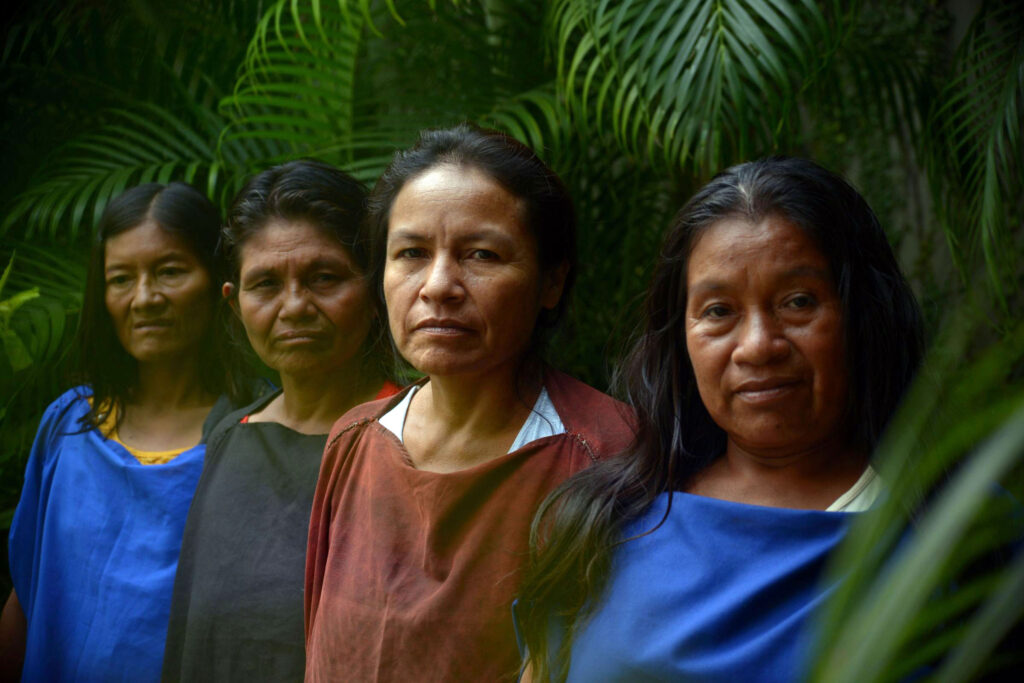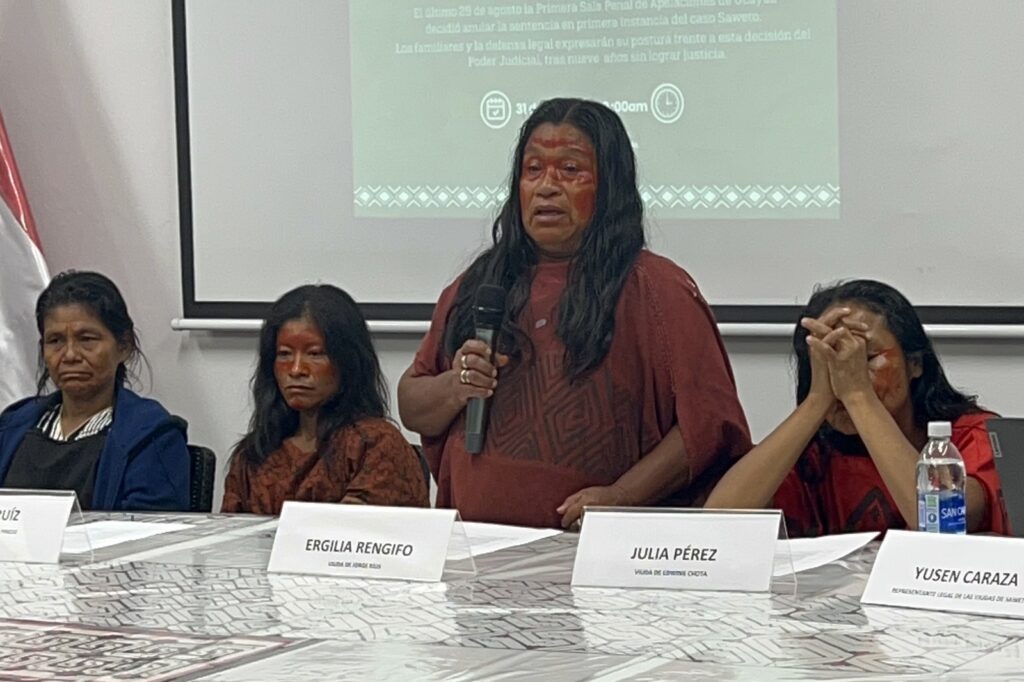The widows and families have relentlessly sought justice for the murdered leaders of Saweto.
IMAGE CREDIT: Hugo Alejos/Mongabay Latam
The longstanding struggle for justice for the widows and families of the murdered Saweto activists remains unfulfilled. In February, the culprits behind the murder of four Indigenous leaders from the Alto Tamaya-Saweto community had been sentenced to 28 years in prison. Then last month, in an unexpected twist, the Peruvian court reversed this decision, threw out the sentence, and ordered a reassessment of the legal process.

Edwin Chota, Jorge Ríos, Leoncio Quintisima, and Francisco Pinedo were brutally murdered allegedly by illegal loggers on September 1, 2014. Since that day, their widows have relentlessly sought justice, facing ongoing threats and dangers. “I am outraged because we don’t have justice. We have been seeking justice for nine years. As poor and Indigenous people, we don’t have rights,” Ergilia Rengifo, the widow of Jorge Ríos, told Mongabay Latam in her first statement in Lima after the court decision.
The appeals court claimed its decision to overturn its initial ruling was based on two technicalities: First, key testimony from the protected witness, which heavily incriminated the accused, was mishandled and was mishandled and should therefore not have been admitted into the record. Second, because the case rested solely on circumstantial evidence, it requires the prosecution to present principal and supporting evidence to a specific standard—a standard the appeals court believed wasn’t met.
The widows’ quest for justice has stretched over nearly a decade, within a system historically unfavorable to Indigenous peoples, based in a city far from their homes and communities. The families of the deceased are urging the President of the Republic, Dina Boluarte, to comment on the case. They claim that, up to this point, the state has not included them in its witness protection program nor provided any public support. As of now, Boluarte has remained silent.
Ucayali Region: Among the World’s Most Dangerous

A recent report by Global Witness reveals that at least three land and environmental defenders from the Ucayali region have been killed in just the past two years. Peru ranks among the 10 most dangerous countries in the world for land and environmental defenders, with 42 individuals killed between 2014 and 2022. Over half of these fatalities occurred in the Amazon.
Fear of retaliation has led to a population decline in the Saweto community. Many have left, and those remaining are apprehensive about leading forest conservation efforts. Nevertheless, widows Ergilia Rengifo, Julia Perez, and Lita Rojas have reaffirmed their intent to continue their pursuit for justice.
Their representative, Dr. Alberto Yusen Caraza, speculates that the legal battle might stretch until 2025.
Stand with Saweto
The recent ruling, which garnered global attention and backlash, has prompted key officials to take action. Based on the vast media coverage that the recent ruling received, high level officials from the Ministry of Justice and the Ministry of Culture—which oversee Indigenous peoples’ affairs—met with the widows. The widows also met with representatives of the “Defensoría del Pueblo” (the Office of the National Ombudsman). However, continued support from the global community is paramount.
Persistent threats and increasing challenges make it hard for the widows to support their families while pursuing their case. Lita Rojas, widow of Leoncio Quintísima, spoke of some of their struggles. These include the arduous and dangerous two-day journey to Pucallpa, the city where the trial is taking place, hunger in their communities back home, and elusive peace.
Supporting these widows is crucial. Their safety, the safety of their children, and their capacity to continue seeking justice hinge on the support of the international community. There is a pressing need for funding, as many of the threats they face are exacerbated by financial constraints. Keeping this in the global spotlight will send a strong message to judges and other authorities that the world is watching the case closely. This case transcends Saweto’s boundaries; it sets a landmark precedent in criminal prosecution in Latin America by holding both the triggermen and the businessmen who hired them accountable for the murders. It holds profound implications not just for Peru, but for all of Latin America.
Stand with the widows and families of Saweto. Stand for justice!








